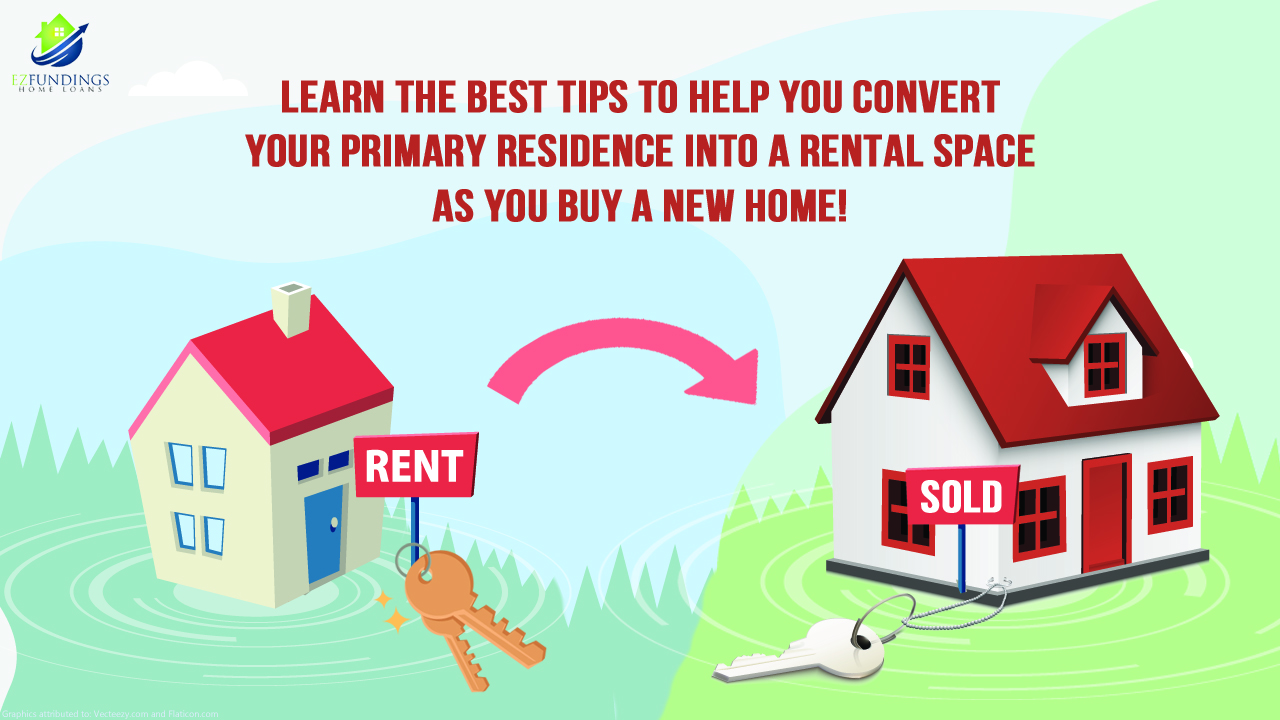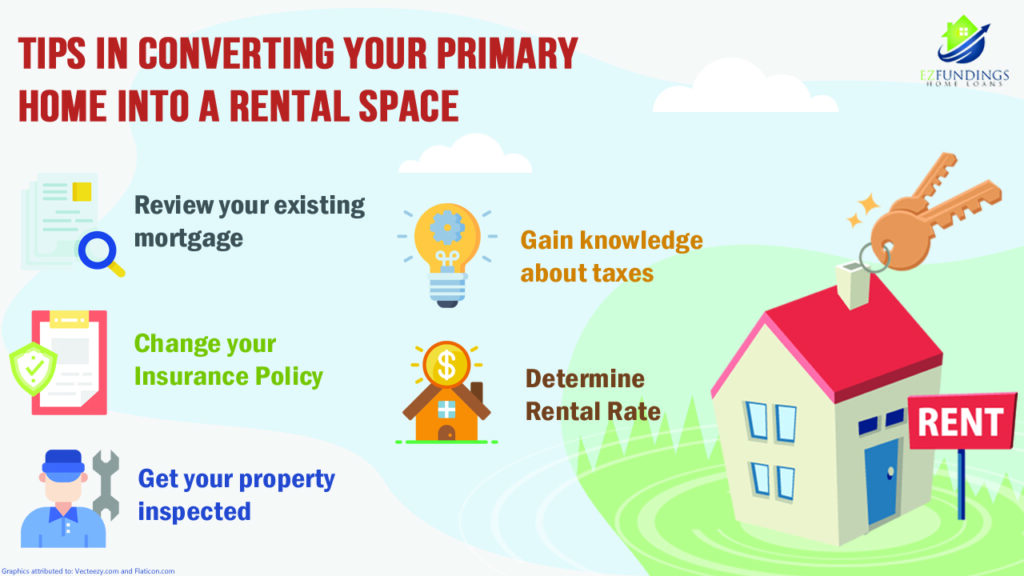
To buy a second home and to make your primary home a rental space is a great idea. This is because you can have an extra source of monthly income that can cover or offset your mortgage payment. And that this strategy makes the homeownership process less expensive and easier than getting a new investment property loan.
Needless to say, the unprecedented challenges posed by the global pandemic have truly transformed lives and the world around us. Even post-COVID-19, people now prefer to stick with the concept of ‘Stay home, stay safe’. During COVID-19, most people choose to work from home to maintain social distance and stay safe. However, working at home wasn’t easy for those living in small homes. But as it was the need of the hour, they had to accommodate. If you faced this problem but still want to work from home post-COVID-19, make your primary home a rental space and buy a bigger home to meet your changing lifestyle needs is best. This is also a way of seizing opportunities amidst the problems we face!
So, here are the best tips to help you convert your primary residence into a rental space while ensuring it is a sustainable and lucrative property investment.

Review Your Existing Mortgage
Though property owners can rent their mortgaged homes, it is still advisable to check your lending agreement if you’re allowed to do so. If it allows you, then go ahead and get started. However, if it doesn’t, then you’ll have to refinance with another mortgage lender who allows you to rent your property.
Change Your Insurance Policy
Please note that when you rent your home, the homeowners’ insurance that you currently have will no longer be adequate. Therefore, you will need landlord insurance to protect your rental property from damages and losses. Landlord insurance covers:
- Structural damages
- Maintenance equipment
- Outdoor feature
- Minor injuries or accidents on your property
- Damage caused by fire, hail, or lightning
Get Your Property Inspected
Hire a home inspector to get your property thoroughly inspected. This will help you identify and fix issues related to plumbing, flooring, termites, and the home’s structure. This will cost you money upfront but spare you from long-term issues and expensive repairs and replacement jobs.
Gain Knowledge about Taxes
Rental income is taxable, but landlords also get tax deductions for rental property expenses. Therefore, consult a tax professional to learn how you can save on taxes.
Determine Rental Rate
Research the monthly rental rate in your area and the rental property’s carrying costs (mortgage payment, insurance, property taxes, utilities, etc.). Besides this, make sure to estimate the potential cash flow of your rental property and factor in the vacancy rate. This will help you determine if renting the property is a profitable decision.
If your current home makes an excellent rental property, then that’s great. You can use up to 75 percent of your potential rental income to qualify to buy a new house. Here’s how this works:
Suppose you are renting out your property for $1000 monthly. Therefore, instead of selling it, you can convert it into rental space and use 75 percent of its rental income to offset your current home loan payment. Also, you will more easily qualify to buy your next home.
You can buy a bigger space and designate a room for your home office. Hence, you will have a separate workspace and can easily work from home without disturbance or distraction while generating passive income from your rental space. It’s a win-win all the way.
However, note that you will need to make a down payment for a new home. You can easily buy a new primary home for as low as a 3.5 down payment through an FHA loan or zero percent down with a VA mortgage.
For more information or assistance, contact us. Schedule a consultation with our expert team today.
